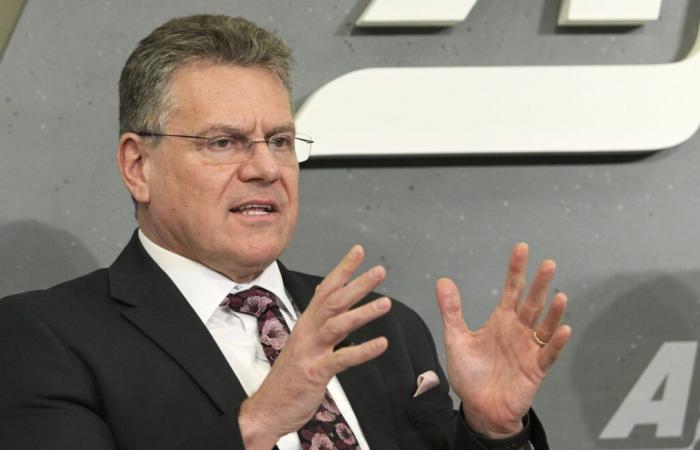To ease transatlantic trade tensions, the European Union plans to build its purchases of American products up to 50 billion euros. Objective: to rebalance the trade balance with the United States and obtain the lifting of the surcharge imposed by the administration of Donald Trump.
In an interview with the Financial Times, the European Commerce Commissioner, Maros Sefcovic, said the contours of this strategy. “If we consider that the deficit amounts to 50 billion euros, I think we can really solve this problem very quickly thanks to LNG (liquefied natural gas) purchases or certain agricultural products such as soybeans,” he explained.
An important commercial imbalance according to Washington
The EU is currently in talks with the American administration in order to obtain the abolition of additional customs duties imposed by President Donald Trump: 25 % on cars, aluminum and steel, and 10 % on all other imported products. Washington accuses Europe of maintaining a large commercial imbalance, quantified to hundreds of billions of dollars according to Donald Trump. Brussels, for its part, nuances this reading by including the services in the calculation of the commercial balance, bringing the deficit to around 50 billion euros.
“We believe that we can really do many things together, in particular by working on the overcapacity of steel and aluminum, on semiconductors, and overcoming outbuildings related to critical raw materials,” said Maros Sefcovic.
The need for unanimous approval of the 27 member states
Asked about the hypothesis of a floor of 10 % customs duties, the European Commissioner warned that “the EU considers this as a very high level”, and warned that reaching a compromise “clearly good and acceptable for our member states and our European Parliament” will be “very difficult”.
Our file on customs duties
Indeed, any advance should receive the unanimous approval of the 27 member states, as well as the ratification of the European Parliament. The negotiations therefore promise to be long and complex, in a commercial climate always tense between Brussels and Washington.






